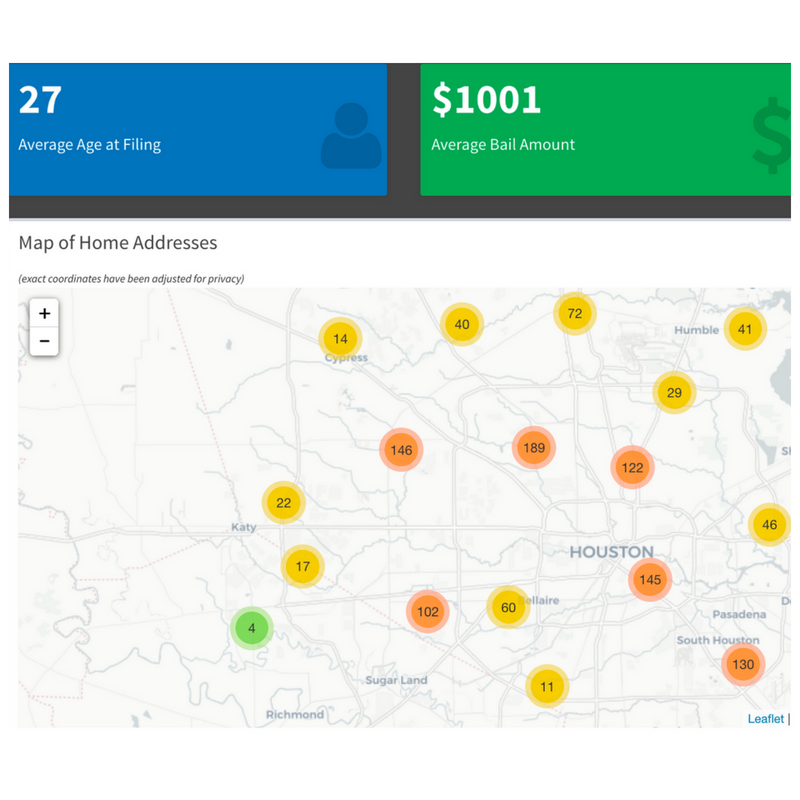How Data Can Be a Critical Tool in Criminal Justice Reform: Transparency Encourages Advocacy and Accountability in Dallas County

On any given day, Dallas County incarcerates about 5,100 people in county jail. About 71% of these inmates are “pretrial,” which means they are awaiting trial for the charges against them. If they are in jail as a pretrial defendant, it generally means they cannot afford bail, or they are held without bail.
Is the crime serious enough to do time? Not always. On average, Dallas County jail has about 400 pretrial defendants who are incarcerated for misdemeanor charges. They are in jail because they cannot afford bail. And their incarceration alone costs Dallas County taxpayers about $24,000 per day.
For nearly two decades, the Texas Criminal Justice Coalition (TCJC) has been dedicated to educating and informing the public about criminal justice trends across Texas. With the help of data science firm January Advisors, our work in Harris County (Houston) took almost a million records of criminal court dispositions and visualized those case outcomes in an interactive dashboard that anyone can use.
Want to know how marijuana diversion is working? Simply load the dashboard and filter by marijuana possession to see how cases were resolved. Want to track how bail reform is working? Just set a date range and pull up charts to see how things are changing, or even if they are changing.
Judges are elected officials, and the outcomes of their work should be available for public review. Building on our successful work in Houston, TCJC and January Advisors are partnering with Microsoft Cities Team – Civic Engagement to expand our work to Dallas County this fall.
TCJC will be developing a dashboard for Dallas County that allows anyone to research court dispositions, create custom graphs and maps, and share the dashboard on social media. We’ll be collaborating with others working in the criminal justice space, including local advocacy groups and elected officials.
We are also developing a series of best practices for criminal court disposition data, including establishing a data standard for court dispositions across different regions, and configuring an API for requesting data, which will help TCJC launch future databases, inside and outside of Texas. We hope this will assist county executives, chief data officers, and advocates across the county with their transparency and open data efforts.
Together, we want to empower communities to build upon this work, open up criminal justice data in their region, and give advocates the data they need to make a clear case for reform.



